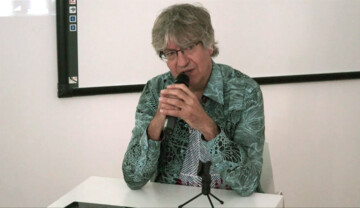Instituent Pratices & Constituent Power of the Common
The primordial tension running through the problematics of the common in this historical moment is between two aspects: the proliferation of practices of commoning, that generate other ways of producing, instituting, organizing and creating alternative forms and paths to sociality and politicity, which are really new protomodels of socioeconomic organization; and the insertion of these forms and paths into the logic of reproduction of an economic and political power structure defined by the power relations historically built by relations of capital, whose capacity of imposing its systemic tendentiality is still very high and not greatly affected by proliferating rizhomatization of the commoning. The analysis is centered therefore on the conceptual and practical leaps new political subjects should organize and produce in order to reduce –or tendentially close– the current gap between the instituent practices of commoning and the constituent power of the common. The latter must impose itself as a dynamic network of sociopolitical mechanisms of expansion of the productivity shown by the commoning insistent practices –imposing itself in terms of counterpowers and capabilities for destructuring the reproduction of important areas and subsystems of the capitalist social structure. The analyses calls for a critique of current mainstream theorizations on the common and commoning as a set of infinitely expansive practices; whose proliferation automatically generates –or yet worse, generates through spurious teleological logic– progressive dynamics to replace the current capitalist predatory practices of the commons and the common and unbinds a gradual recuperation of historically conquered social rights: rights destroyed by the multidimensional effects of diverse strategies of accumulation by dispossession and pure political violence implemented by dominant elites and classes. The main argument of this presentation is we must think simultaneously of the instituent practices of commoning and the political dynamics that make feasible, out of their proliferation, a constituent power of the common, because without thinking about and organizing the latter it isn´t possible to expand and consolidate the socioeconomic productivity and disruptive impact of the former.
Prácticas instituyentes & poder constituyente de lo común
La tensión primordial que atraviesa la problemática de lo común en este momento histórico es la que corre entre la proliferación de prácticas que establecen otros modos de producir, instituir, organizar y crear formas inéditas de socialidad y politicidad, que presagian y materializan nuevos modelos de organización social y económica, y la inserción de aquellas en la lógica de reproducción de una estructura de poder económico y político definida por las relaciones de poder históricamente construidas por la relación capital, cuya capacidad de imponer su tendencialidad sistémica sigue siendo muy alta, resultando débilmente afectada por la rizomatización proliferante de lo común y sus prácticas. El análisis se centra, por consiguiente, en los saltos conceptuales y prácticos que los nuevos sujetos políticos deben organizar y producir a fin de reducir –o tendencialmente cerrar– la distancia existente entre las prácticas de creación y diseminación de lo común (commoning) y un poder constituyente de lo común, el cual debe imponerse como una red dinámica de dispositivos sociopolíticos susceptibles de provocar la expansión de la productividad mostrada por las prácticas instituyentes de lo común (commoning), que se materializan como contrapoderes y capacidades capaces de desestructurar la reproducción de áreas y subsistemas importantes de la estructura social capitalista. El análisis invita también a la crítica de las teorizaciones predominantes de lo común como un conjunto de prácticas infinitamente expansivas, cuya acumulación genera automáticamente –o peor todavía a partir de una lógica teleológica espuria– una dinámica progresiva de sustitución de las actuales prácticas capitalistas depredadoras de los bienes comunes y de lo común, así como la gradual recuperación de los derechos sociales históricamente conquistados y destrozados durante las últimas décadas por los efectos multidimensionales de las diversas estrategias de acumulación por desposesión y pura violencia política implementadas por las clases y elites dominantes. La tesis fuerte en esta presentación es que debemos pensar simultáneamente las prácticas instituyentes de lo común y las dinámicas políticas que hacen factible, a partir de su proliferación, un poder constituyente de lo común, ya que sin pensar y organizar este no es posible expandir y consolidar la productividad socioeconómica y el impacto disruptivo de aquellas.


